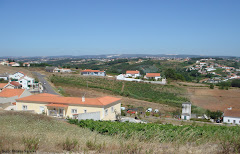Quando:
August 18th to 22th 2014
Onde:
Krakow
The main theme of the conference is Changes, Challenges, Responsibility. Modern geography faces significant challenges focusing on the recognition of and response to contemporary changes in the environment, society and economy. All this calls for our responsibility. The conference aims to create a forum at which these issues can be addressed. It is open to all geographers across the spectrum who specialize in all fields of the discipline. The conference is going to be an event contributing to efforts undertaken, for example, by ICSU/ISSC Future Earth, and aimed at defining pathways towards sustainability and responding effectively to the risks and opportunities of global environmental change.
Urban commission sessions
1- Complex Urban Systems
Urban systems have seen radical changes in the last decades and will continue to do so. How are the various national, continental and global urban systems changing - in such features as city size, economic specialization, migration, interactions through social, economic, communication and transport networks and control functions? What processes and differential development paths are involved and how have different government policies affected these changes? Previous urban commissions have produced a large body of work on the urban systems of individual countries. This work will be extended to incorporate updated national and international comparisons and the accelerated growth of a limited number of global command centres in the highly connected world of electronic communications, finance, trade, and rapid travel. In addition, we must seek solutions for those cities that are left behind by these changes.
2- Technological innovations and creative activities in cities
Urban economies are evolving quickly, with the growth of the “service” sectors and new activities in science, technology, communication, media, design and art. How do these activities specialize within some cities and how do these new “clusters” integrate within urban economic, social and environmental development? Can we quantify “smart cities” or specific urban “creative activities”? Can one identify life cycles of cities in these economic trends? Does this growth benefit the entire city or does it increase polarisation and fragmentation in the development of urban areas? Does it alter the shape and structures of urban areas and does it lead to new forms of urban societies?
3- Contested Social Spaces
The increasingly multi-layered social and ethnic character of cities has led to more intricate life spaces within cities, and potential conflicts among the various groups. Since many multinational communities, either diasporas or cosmopolitans, combine transnational links and strong intra-community cohesion, they may threaten other communities. How can we measure these new patterns and changes and make effective international comparisons? Where and when do conflicts emerge? How can differences between the various actors in these spaces be reconciled, ensuring that local communities are themselves empowered, rather than simply passive recipients of change from forces beyond their control, and that all groups are able to live in tolerance with one another?
4- Creating Sustainability
Can sustainability be tackled at the urban scale? What progress is being made by cities around the world in the development of new programmes and policies to create more environmentally and socially sustainable areas? How can these solutions be evaluated at various spatial scales? What are the emerging best practices in cities, from smart growth to green solutions etc., and what are the problems that restrict progress in implementing these more effective policies?
5- Dilemmas of Aging Cities
A serious new problem has emerged in some cities of the developed world. The declining birth rate of industrialized countries is creating many settlements with increasingly aging populations. What are the effects of this trend upon the functions and character of these cities, especially their infrastructures and levels of social provision? What policies are emerging in cities around the world affected by this problem to cope with these changes? How can the so-called “shrinking cities” manage their future?
6- Increasing Insecurity
In the past, cities survived because of their ability to create secure environments for their citizens. In many contemporary cities crime rates, anti-social behaviour and ethnic conflict threaten to make them less liveable, despite higher levels of surveillance, and apparent solutions such as gated communities, which create more private spaces and segregation. Part of the explanation for these trends may be unequal income distributions in which the lower income groups struggle to survive or maintain their position and the wealthy create exclusive areas. Several key problems emerge from these changes. How we can best conceptualize and measure these new forms of insecurity and more compartmentalised spaces? How do we make international and national comparisons of the increasing inequalities within cities and the levels of insecurities? Can we apply the best practices of cities that have successfully overcome these problems to other cities and societies, as well as linking these problems to our understanding of the new forms of urban social spaces?
7- Urban Heritage and Conservation
The distinctive identity of many cities and societies depends upon their historical heritage, as expressed in their built fabric. How can these identities be understood and interpreted? What are the policies that support the preservation of these heritages, yet still provide liveable and affordable spaces in these areas, instead of allowing historic areas and city centres to be overwhelmed by homogenised tourism?
8- Urban Governance
It is an unfortunate, but undeniable, fact that most large urban agglomerations are not permitted to govern themselves. Control over revenues and investments is shared with other levels of government and/or fragmented among dozens of small municipal units within the metropolitan area. Inevitably these political arrangements affect the spatial structure of infrastructure and public services, including planning. We must explore the spatial issues that detract from urban governance, and investigate the utility of emerging administrative solutions seen in many countries, such as the ‘new regionalism’ that seeks to provide a new spatial solution to the provision of services.
Ver mais:
http://www.unil.ch/igu-urban/page99413.html?matrix=1385638924731
Subscrever:
Enviar feedback (Atom)














Sem comentários:
Enviar um comentário